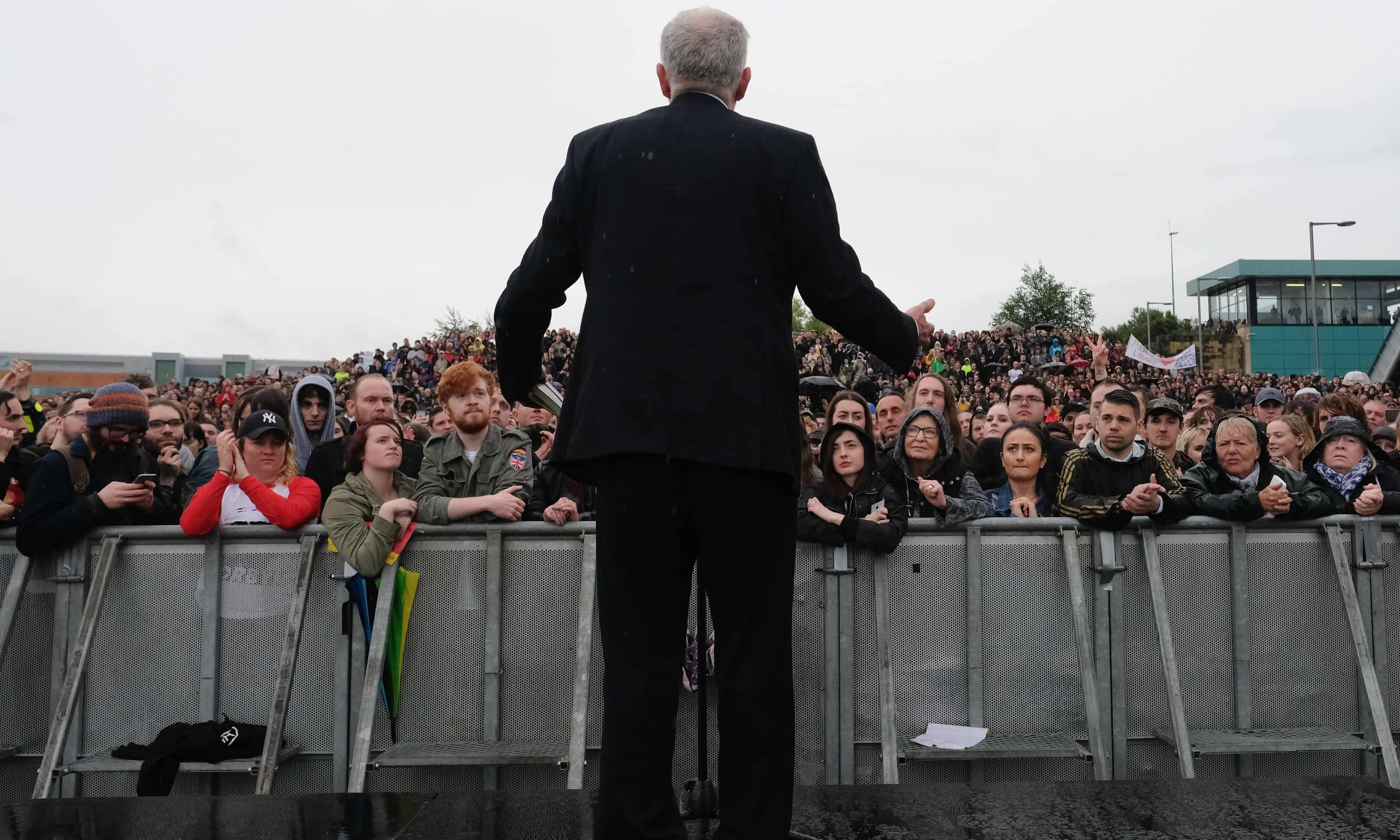By Hani Barghouthi
A little over a month before the UK’s snap elections, which took place on June 8, our weekly recommended reads included an analysis from the Telegraph that was pretty much in line with the dominant media narrative on the elections, concluding that “[Theresa] May might have given herself an impressive advantage by calling a surprise election when she constantly claimed she would not.” At the time, Labour leader Jeremy Corbyn’s approval ratings were at a record low, and it appeared that May would in fact increase her majority in Parliament in a landslide victory for the Conservatives. This remained the assumption as recently as a few weeks leading up to the election. Even on the night before the election, it seemed like the Tories would still have a comfortable majority, despite polls showing more favorable opinions of Labour and Corbyn.
And then the elections came, leaving everyone blindsided in their wake, as the result was a “hung” parliament in which no party held a majority. This meant that the Conservatives lost their majority, and Labour gained seats in Parliament. Theresa May gambled by calling a snap election and it backfired spectacularly. She is now in talks with the Northern Irish Democratic Unionist Party, with whom she is planning on forming a coalition in order to reach the majority her party needs. These points, and much more, are discussed in this long read in The Guardian, in which Gary Younge outlines the true extent of Corbyn’s surprise performance in the elections. Interestingly, he also comments on the role the media might have played in this result coming off as a shock, given how negatively Corbyn was portrayed throughout the election and how journalists and politicians were constantly and consistently telling people that the only possible result was a Conservative landslide.
“As long as journalists, politicians and party workers were – for the most part – talking to each other, they were only reinforcing each others’ narratives. If events had been unfolding as normal, then everything they said would have made sense. But nothing was normal. And as long as they were tied to the old way of thinking, there was no way for them to know it until the votes came in.”
In this powerful piece on Al Jazeera, Susan Abulhawa weighs in on the controversy surrounding the film Wonder Woman. She discusses, and deftly breaks down, the irony in hiring a Zionist and former IDF soldier to portray a supposedly universal feminist icon, bringing in her own experience with Wonder Woman as a child.
“But make no mistake. Zionism cannot reconcile with feminism, and such antiquated imperial feminism belongs to another era, when feminists fought for the right to vote, but only for white women.”
In The Atlantic, Adrienne Lafrance examines an aspect of political life that fluctuates based on period and location but never disappears fully: conspiracy theories. She stipulates that conspiracy theories become a prominent staple of politics when politics aren’t particularly stable. She also draws parallels between US politics today and in the days of Richard Nixon. What is fascinating is that the same parallels can swiftly and easily be applied to international politics generally, and within the MENA region specifically.
“What we do know is this: Conspiracy theories flourish when people feel vulnerable. They thrive on paranoia. It has always been this way.
So it’s understandable that, at this chaotic moment in global politics, conspiracy theories seem to have seeped out from the edges of society and flooded into mainstream political discourse. They’re everywhere.”
For the New York Times, Manal Al-Sharif recalls the consequences she faced after driving a car in Saudi Arabia – where it is illegal for women to drive – both directly after the incident and within the larger, familial scale. She tells the heartbreaking story of how she had to leave her son behind after moving to Dubai. As a divorced mother, she was not allowed to remove her son from the country without her ex-husband’s consent. And then there was the added anguish of having another son in a different country, and being in a situation where her two sons have never met one another.
“I hired a lawyer to contest the premise that I could not have my son visit me in Dubai. The verdict was no. The court cited a 10th-century Islamic text, from the time of camels and caravans traveling across hot desert sands, and noted the “risk of the child dying en route on such a dangerous distance.” The trip from Dammam, where he lives in Saudi Arabia, to Dubai is one hour by plane.”
Finally, Dahlia Scheindlin analyzes the recent code of ethics drafted by Naftali Bennett for higher education institutions in “Israel”, which she sees as a specific attack on liberals and left-wing academics, as well as an attempt to stifle any resistance to the Occupation. This, she infers, will be done by imposing harsh limits on freedom of speech and expression for students and academics alike, and make intellectual dissent a violation of the law.
“Translated in the current Israeli context, this unambiguously refers to the idea that boycotts in protest of Israel’s occupation policies could be interpreted as offensive to the dignity of students – and therefore can be prevented on campus. It could refer just as well to the commemoration of the Palestinian Nakba at Israeli universities, or questioning Zionism. It is hard to imagine the author considered right-wing activism, IDF support, or Im Tirtzu thought-bullies when drawing up that item.”





